Review Workshop 'Water Security' at Hyderabad on 23 May 2016
A Review workshop on ‘Water Security’ was conceptualised under the aegis of ‘South Asia Water Fellowships’ (SAWA) project and organized by SaciWATERs with support from IDRC and CapNet. The workshop was held on May 23, 2016 in Hyderabad. The purpose of the workshop was to give feedback on the research work done by the 2nd batch of SAWA fellows with an idea that the suggestions and feedback received will help in developing their research findings into a publishable material. Since, the focus of the fellowship is to bring in interdisciplinary lens into research on climate change and water, the workshop apart from providing feedback also intended to self-evaluate through students’ abstracts in terms of ‘how far have we reached in terms of interdisciplinarity’?
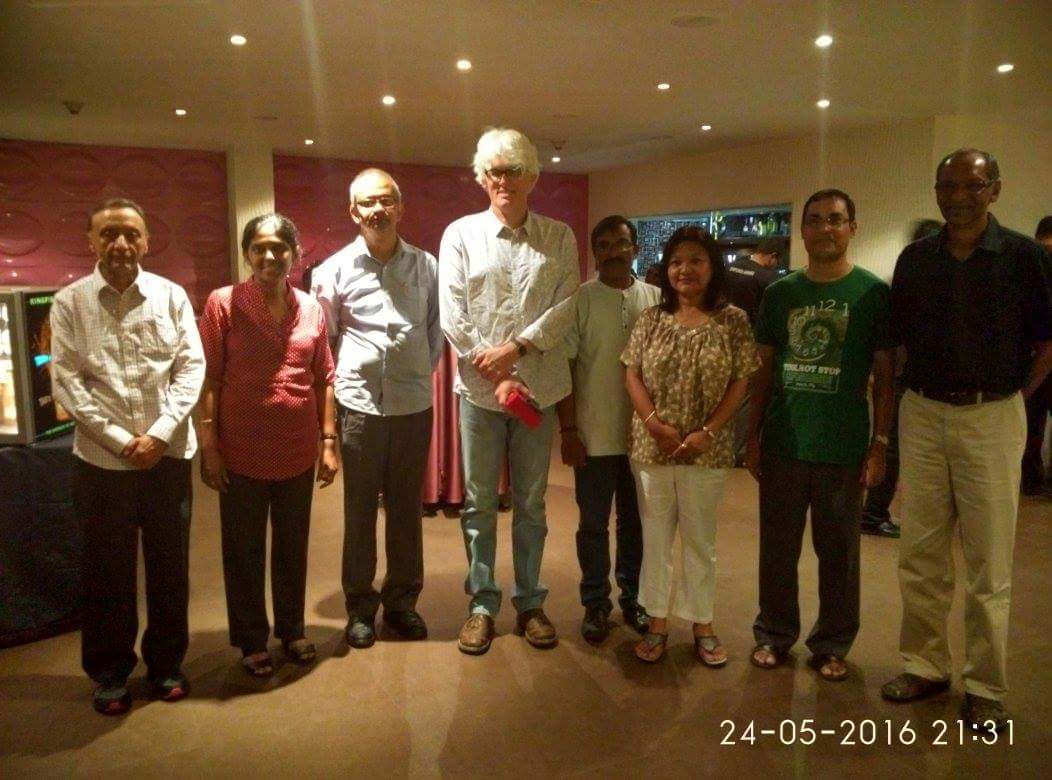
“Regional SAWA fellows training on “Interdisciplinary Research Concepts and Methodologies” in Kandy, Sri Lanka from 28th Nov to 3rd Dec, 2015.
As a part of the South Asian Water Fellowships, SAWA a training workshop was organized in Kandy, Sri Lanka from 28th Nov to 3rd Dec 2015. Financially supported by IDRC and Cap Net and hosted by PGIA with support from SaciWATERs the workshop gave an overview of IWRM learnings across the four partner South Asian countries. The fellows were trained on topics like gender and water, qualitative and quantitave research tools and methods and statistical sampling. Field visit was also a component of the workshop agenda which gave the fellows an opportunity to apply classroom learning in the field.
Review workshop ‘CLIMATE CHANGE AND FOOD SECURITY’ at Hyderabad on May 29, 2015
A review workshop was organised for the first batch of SAWAS Fellows on May 29, 2015 at Hyderabad, India on the broader theme of ‘Climate change and Food Security’. The training programme was divided into three sessions pertaining to theme of climate change and food security namely Social and Policy approach, impact led assessment and Land Use and Land change. The objective of the programme was to provide a platform to the first batch of the SAWAS Fellows to present their research work among their peer and external reviewers. The purpose of the workshop was to provide feedback on the study done by the fellows for further improvement to a publishable material.
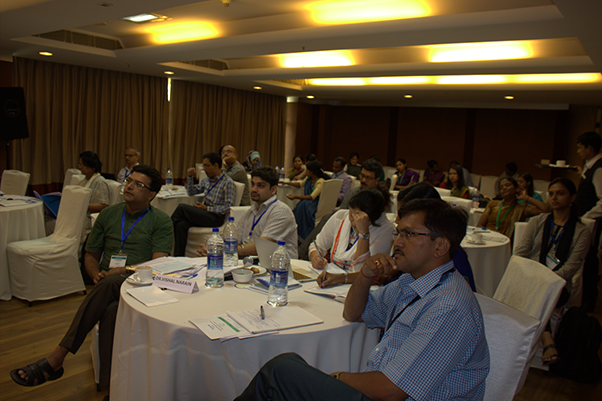
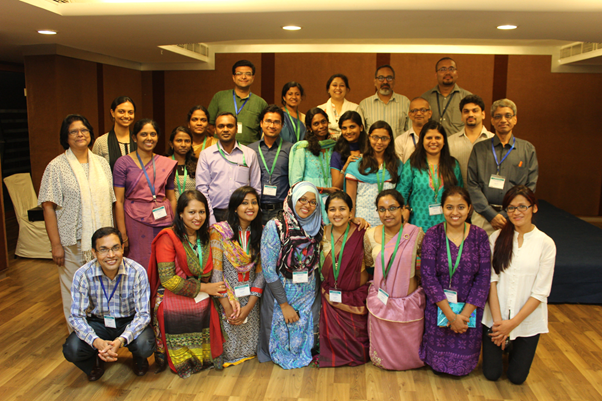
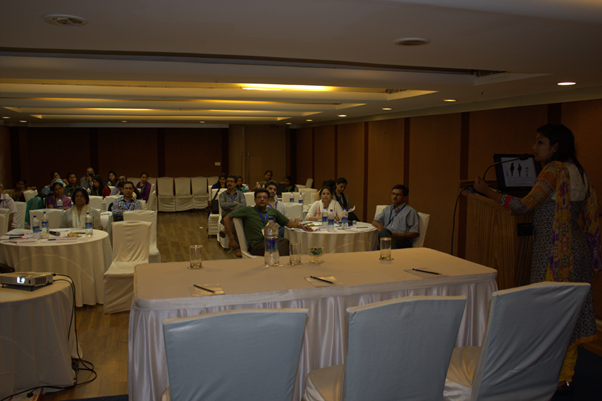
Regional SAWA Fellows Training on Interdisciplinary Research Methods, held at Dhaka on December 18-22, 2014
As part of the South Asia Water Fellowships (SAWA), a training programme on Interdisciplinary Research Methods was organized in Dhaka, from December 18 – 22, 2014. The training programme was entitled “Regional South Asia Water (SAWA) Fellows Training on Interdisciplinary Research Methods”. The training programme was financially supported by International Development Research Centre (IDRC), Canada. The workshop content covered the overview of IWRM across South Asia, gender and water, qualitative and quantitative research methods; followed by field visit. The sessions were interactive in nature. Participants got the chance to apply classroom learning in the field, with field trip during the programme, one to Narayanganj- Narshinghdi Irrigation project in the peri urban area of Dhaka. Students conducted FGDs, key person interviews and household survey based on the topic assigned to each group. Overall, the participants were happy with the sessions and the field activity.
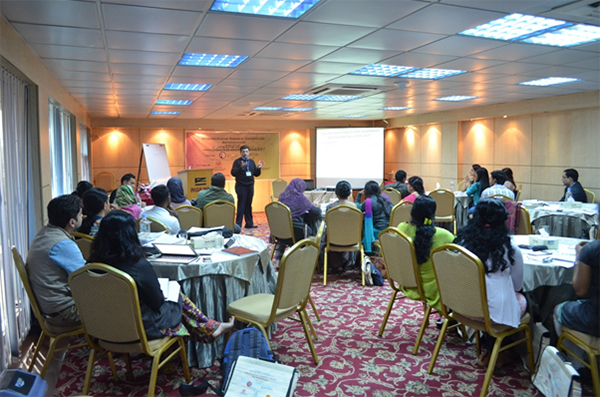
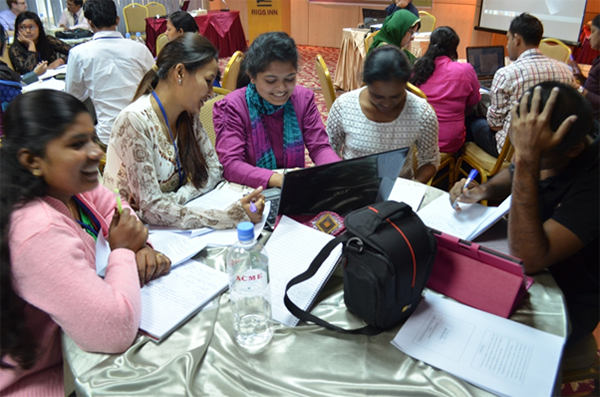
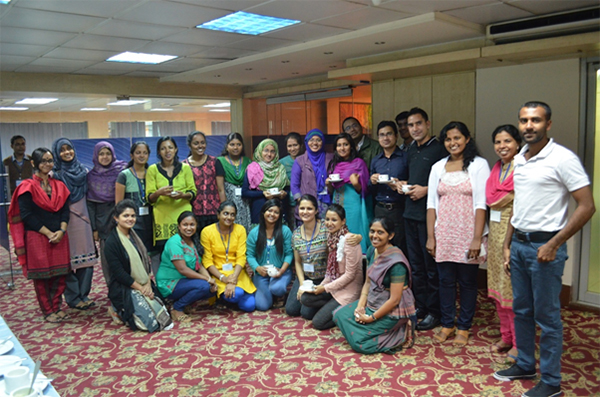
SAWA Training workshop, Kathmandu, October 3-8, 2013
SaciWATERs in association with its partner institutions in Bangladesh, India, Nepal and Sri Lanka conducted a 6 day training program in Kathmandu, Nepal, the first of the IDRC-SAWA fellowship training series. The training programme had 25 Postgraduate students from the four partner institutions participating and was funded by IDRC and Cap-Net. South Asia’s agricultural economies are vulnerable to extreme environmental events. Better management of water and other natural resources is fundamental to the development of the region. Climate variability and change, food insecurity, population growth and urbanization have intensified environmental disasters in the recent past. Poor land and water resource allocation, utilization and pollution have robbed the poor, particularly women, of livelihood and dignity. Such broad, yet closely linked issues can only be effectively tackled through a holistic interdisciplinary approach. The fellowship seeks to address these issues, by providing the opportunity to train a generation of water professionals to tackle water issues using multi-disciplinary approaches that are sensitive to women, the poor, environment and sustainability.